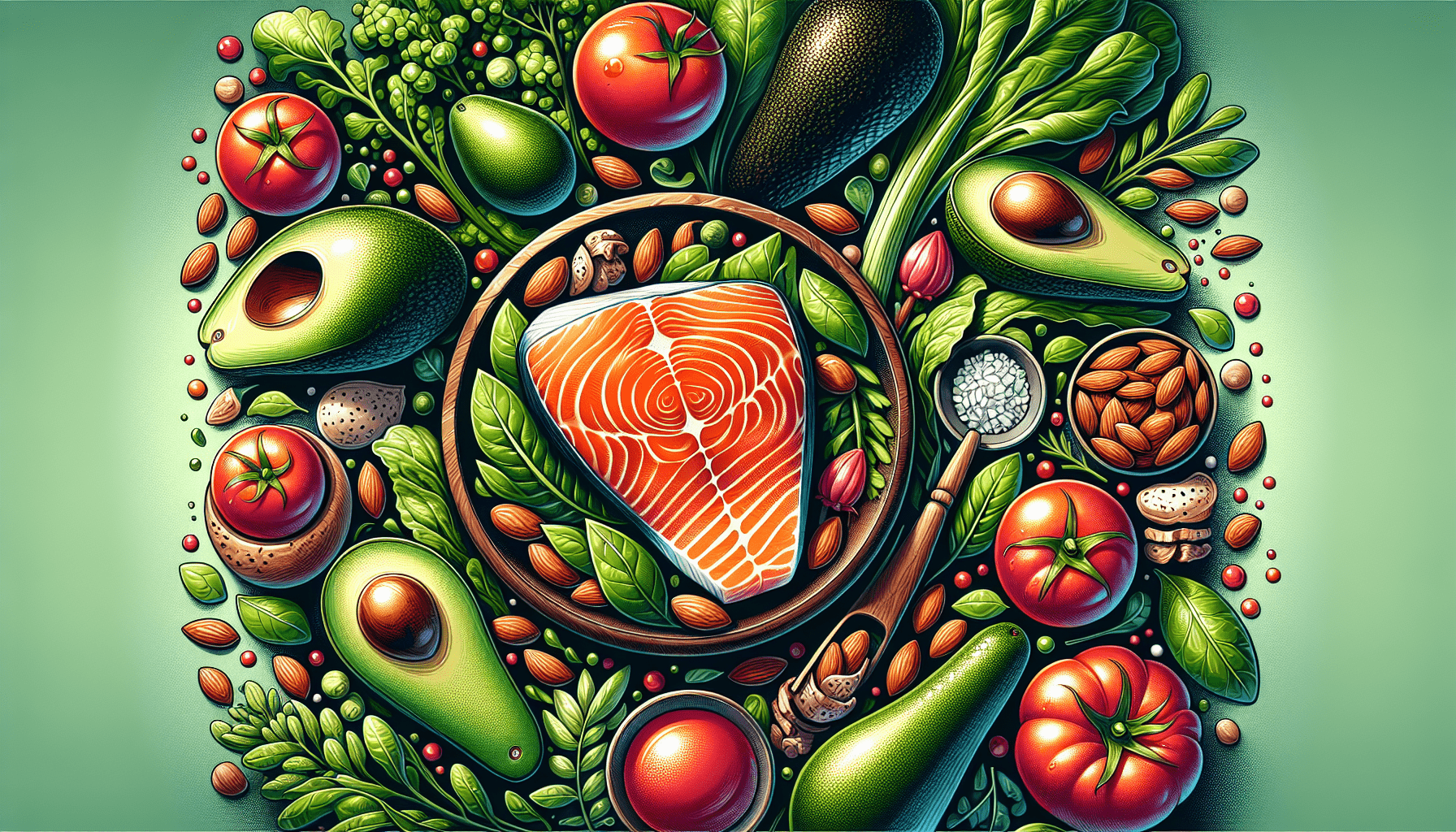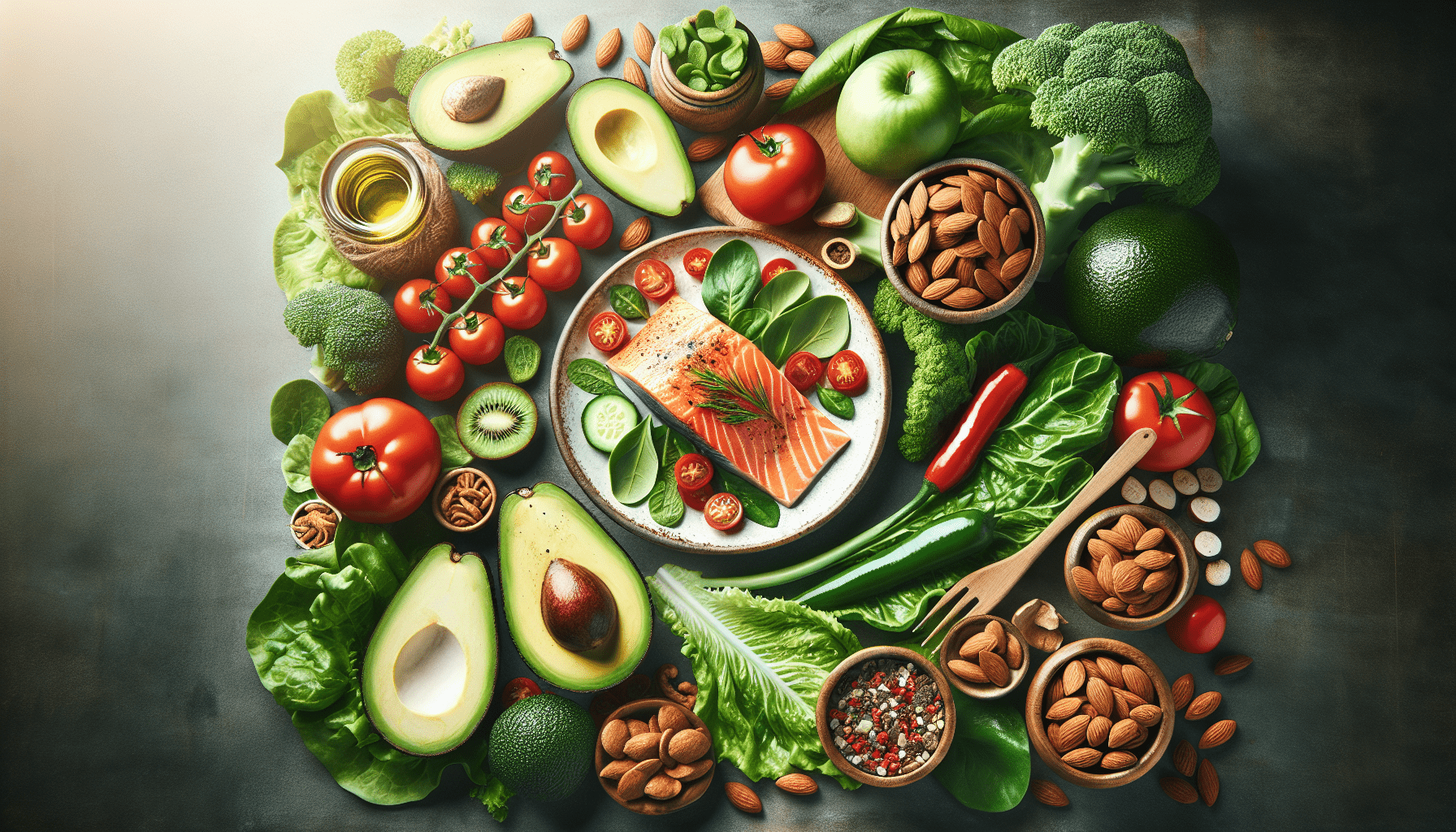Have you ever wondered how to power through your day while simultaneously shedding unwanted body fat? The ketogenic diet might be the answer you’re looking for. This low-carb, high-fat eating plan has gained immense popularity for its remarkable effects on energy levels and fat loss. But to make sure you’re reaping the full benefits, it’s essential to know what foods should be on your keto radar.
Understanding the Keto Diet
Table of Contents
Before diving into specific foods, let’s briefly touch on what makes the keto diet unique. The ketogenic diet primarily focuses on drastically reducing carbohydrate intake and replacing it with fat. This macronutrient shift leads your body into a state known as ketosis, where fat becomes your primary energy source instead of glucose.
The Science Behind Ketosis
When you consume fewer carbs, your liver starts producing ketones from fat. These ketones fuel your brain and body, providing a stable energy supply. Unlike the quick highs and subsequent crashes from carbs, ketones offer more sustained and steady energy levels, making you feel less tired throughout the day.
Essential Keto Foods for Energy
Consuming the right foods is crucial for maintaining energy while on a keto diet. Let’s break down the key food groups and specific items that can keep you fueled and focused.
Healthy Fats
Healthy fats are the cornerstone of the ketogenic diet. They not only keep you satiated but also provide the necessary energy to sustain you throughout the day.
- Avocados: Rich in monounsaturated fats and fiber, avocados are an excellent keto staple.
- Coconut Oil: This oil is high in medium-chain triglycerides (MCTs), which are quickly converted into ketones.
- Olive Oil: Extra virgin olive oil is perfect for salads and cooking, thanks to its high content of heart-healthy monounsaturated fats.
- Butter & Ghee: Choose grass-fed varieties for a more nutritious option.
- Nuts & Seeds: Almonds, walnuts, chia seeds, and flaxseeds provide a good mix of fats, fiber, and protein.
Protein Sources
Moderate protein intake is essential on keto. Too much protein can kick you out of ketosis, so choose your sources wisely.
- Eggs: Versatile, easy to cook, and highly nutritious.
- Fatty Fish: Salmon, mackerel, and sardines are rich in omega-3 fatty acids.
- Meat: Opt for grass-fed beef, pork, and lamb for a more nutrient-dense option.
- Poultry: Chicken thighs and turkey are good choices for their higher fat content.

Low-Carb Vegetables
Vegetables might not be the first thing you think of when it comes to energy, but they play a crucial role in providing essential vitamins and minerals.
Leafy Greens
These are very low in carbs but rich in vitamins and minerals.
- Spinach: Packed with iron and magnesium.
- Kale: Offers a great source of vitamins K and C.
- Swiss Chard: Rich in antioxidants.
Non-Starchy Vegetables
These add bulk to your meals without overloading you with carbs.
- Cauliflower: Excellent for making keto-friendly versions of rice and mashed potatoes.
- Broccoli: High in fiber and vitamin C.
- Zucchini: Perfect for making low-carb noodles.
Keto-Friendly Fruits
While fruits are generally high in carbs, there are still keto-friendly options that can satisfy your sweet tooth without disrupting ketosis.
- Berries: Strawberries, raspberries, and blackberries are low in carbs and high in fiber.
- Coconut: Unsweetened coconut meat or coconut milk is a good way to add flavor and fats.
- Avocado: Yes, it’s technically a fruit and an excellent one for a keto diet.

Dairy Products
Incorporating dairy can be beneficial for maintaining energy and adding variety to your meals.
- Cheese: Cheddar, mozzarella, and gouda are great low-carb options.
- Greek Yogurt: Choose full-fat, unsweetened versions to keep carbs low.
- Cream: Heavy cream can be used in coffee or recipes to add a rich texture and flavor.
Keto Supplements
Even with a well-rounded diet, sometimes you might need a little extra help. Keto supplements can significantly boost your energy levels and accelerate fat loss.
MCT Oil
Derived from coconut oil, MCT (Medium Chain Triglycerides) oil is rapidly converted into ketones, providing a quick energy boost.
Exogenous Ketones
These supplements can help elevate your ketone levels rapidly, aiding in quick energy boosts and easier maintenance of ketosis.
Electrolytes
A ketogenic diet can lead to a loss of electrolytes such as sodium, potassium, and magnesium. Supplementing these can prevent symptoms like fatigue and muscle cramps.
| Supplement | Benefit | How to Use |
|---|---|---|
| MCT Oil | Quick energy boost | Add to coffee or smoothies |
| Exogenous Ketones | Elevate ketone levels | Take as directed on the packaging |
| Electrolytes | Prevent fatigue and cramps | Dissolve in water and drink |
Meal Planning and Preparation Tips
The key to maintaining energy and achieving fat loss on a keto diet is consistency. Here are some tips to help you stay on track.
Batch Cooking
Preparing meals in advance can save you time and ensure you always have keto-friendly options available.
- Choose Recipes: Select a few recipes you enjoy.
- Shop Smart: Buy all necessary ingredients in one trip.
- Cook in Bulk: Spend a few hours cooking and storing meals for the week.
Healthy Snacks
Having healthy, keto-friendly snacks on hand can prevent you from reaching for carb-laden alternatives.
- Cheese and Nut Packs: Pre-portion these for a quick grab-and-go option.
- Veggie Sticks and Dip: Pair cucumber, celery, and bell peppers with a high-fat dip.
- Hard-Boiled Eggs: Cook a batch and keep them in the fridge for a protein-packed snack.
Navigating Eating Out
Dining out can be tricky, but it’s doable with a bit of planning.
Restaurant Choices
Opt for restaurants that offer customizable meals. Steakhouses, salad bars, and seafood places often have keto-friendly options.
Menu Modifications
Don’t hesitate to ask for modifications like swapping fries for a side salad or requesting extra butter or avocado to increase your fat intake.
Drinks
Stick to water, unsweetened tea, or coffee. If you’re indulging in alcohol, go for spirits like vodka or tequila, which have zero carbs.
Overcoming Common Keto Challenges
Every diet has its challenges, and keto is no different. Here are some common issues you might face and how to overcome them.
The Keto Flu
When you first switch to a keto diet, you might experience flu-like symptoms due to the sudden change in your body’s energy source.
- Stay Hydrated: Drink plenty of water.
- Boost Electrolytes: Increase your intake of sodium, potassium, and magnesium.
- Rest: Give your body time to adapt.
Cravings
Carb cravings can be strong, especially in the beginning. Combat them with these strategies:
- Eat Enough Fat: Ensure you’re consuming enough fats to keep you full.
- Find Keto Alternatives: Make keto-friendly versions of your favorite carb-heavy foods.
- Stay Busy: Distract yourself with activities until the craving passes.
Monitoring Your Progress
Keeping track of your progress can be motivating and help you stay on course.
Measure Ketone Levels
You can measure your ketone levels using urine strips or a blood meter to ensure you’re in ketosis.
Track Your Macros
Use apps like MyFitnessPal to track your macronutrient intake and make sure you’re hitting your keto targets.
Keep a Journal
Document how you feel, your energy levels, and any changes in your body. This can help you identify what’s working and what needs adjustment.
The Long-Term Benefits
Sticking to a keto diet can offer numerous long-term benefits beyond just weight loss.
Stable Energy Levels
Unlike the rollercoaster energy levels associated with high-carb diets, keto provides a consistent energy supply, making you feel more alert and focused throughout the day.
Improved Mental Clarity
Many people report enhanced cognitive function and reduced brain fog while on keto, thanks to the steady fuel source ketones provide.
Better Blood Sugar Control
Keto can significantly improve insulin sensitivity and reduce blood sugar levels, which is beneficial for people with type 2 diabetes or those at risk of developing it.
Final Thoughts
Transitioning to a ketogenic diet can be a powerful way to boost your energy and achieve your fat loss goals. By incorporating the right foods and supplements, you can ensure you’re getting the nutrients you need while staying in ketosis. Remember, consistency is key. With proper planning and a bit of discipline, you’ll soon experience the wide-ranging benefits of a well-executed keto diet.





